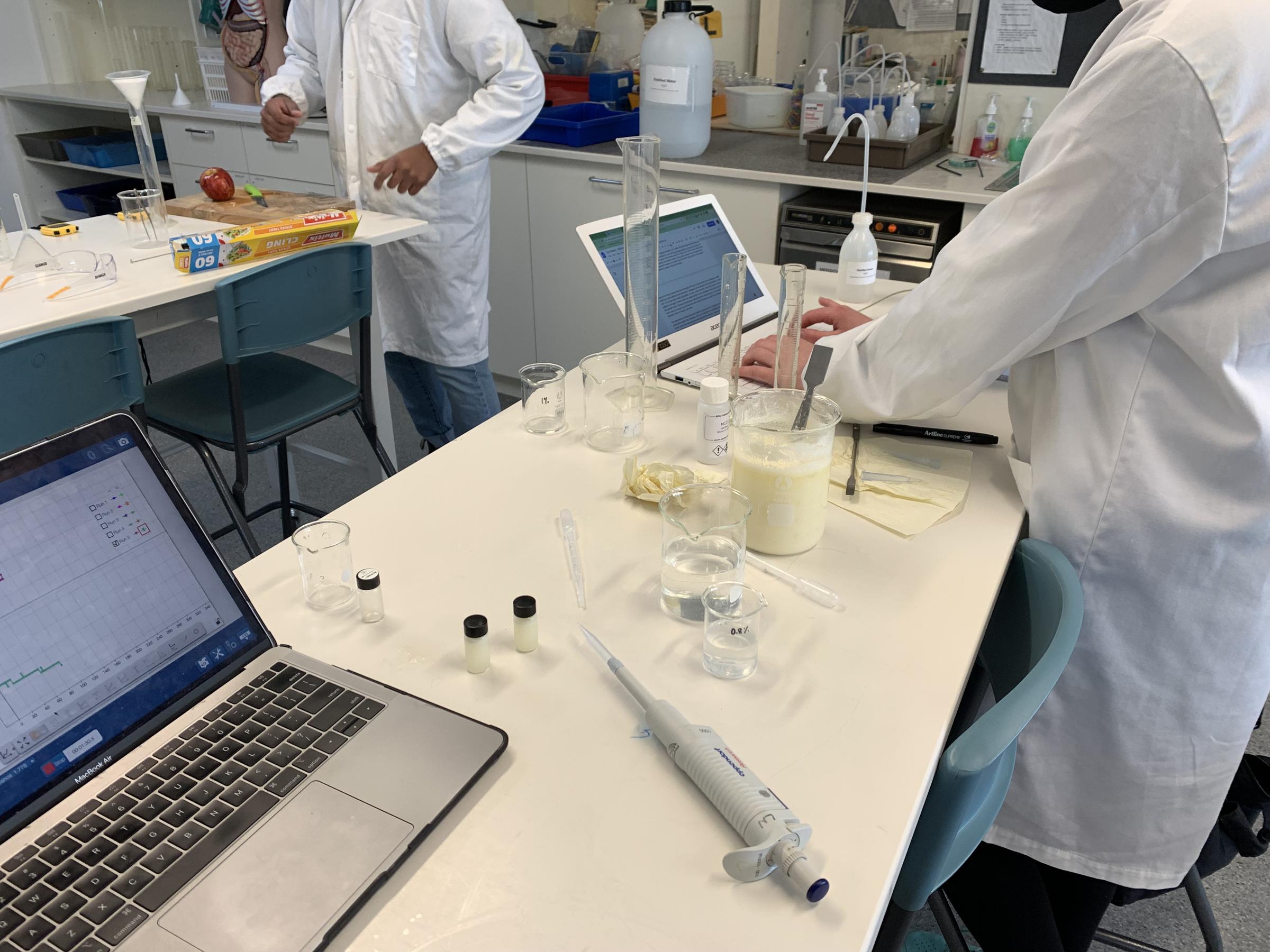IBDP Biology

Group 4 | Biology
| 🎓 Level | HL & SL |
|---|---|
| ⏱ Hours | 150 (SL) or 240 (HL) |
| 📚 Prerequisite | None |
| ℹ️ IB Course Information | Link (HL) Link (SL) |
Each of the Experimental Sciences has the same course structure:
The Standard Level course involves 150 indicative teaching hours over two years. It consists of core material (95 hours), one option (15 hours), practical investigations (20 hours), an individual project (10 hours) and a Group 4 Project (10 hours), in which students from all Science subjects cooperate on an investigation.
The Higher Level course involves 240 indicative teaching hours over two years. It consists of the SL core material (95 hours), additional HL material (60 hours), one option (25 hours), practical investigations (40 hours), an individual investigation (10 hours) and the Group 4 Project (10 hours). For each course, the options offered are the same but Standard Level students are allocated 15 hours of teaching time for the option, Higher Level students are allocated 25 hours teaching time for the option.
What will I learn?
Biology is the experimental science that studies living organisms. Four basic biological concepts underlie the course: the relation of structure and function of living things, universality of some biological entities in a world of enormous diversity, the essential dynamic equilibrium of life and evolution. The program asks students to develop a broad, general understanding of biological principles while limiting the number of biological facts to be acquired. Learning activities will include laboratory practical work, research investigations and field excursions.
The topics covered in the Core are: cells, molecular biology, genetics, ecology, evolution and biodiversity, human physiology.
In addition, Higher Level students also study: nucleic acids, metabolism, cell respiration and photosynthesis, plant biology, genetics and evolution, animal physiology.
Standard and Higher Level students are required to choose one option from: Neurobiology and Behaviour; Biotechnology and Bioinformatics; Ecology and Conservation; and, Human Physiology.
Why should I consider this course?
Biologists attempt to understand the living world at all levels using many different approaches and techniques. At one end of the scale is the cell, its molecular construction and complex metabolic reactions. At the other end of the scale biologists investigate the interactions that make whole ecosystems function. Many areas of research in biology are extremely challenging and many discoveries remain to be made.
Biology is still a young science and great progress is expected in the 21st century. This progress is sorely needed at a time when the growing human population is placing ever greater pressure on food supplies and on the habitats of other species, and is threatening the very planet we occupy.
Assessment
| Component | Requirement | %HL | %SL |
|---|---|---|---|
| Individual Investigation | 12 pages (10 hours) | 20 | 20 |
| Paper 1: Multiple choice | 45 min / 1 hr | 20 | 20 |
| Paper 2: Short Answer & Extended Response | 1.25 hr / 2.25 hrs | 36 | 40 |
| Paper 3: Experimental Work | 1 hr / 1.25 hrs | 24 | 20 |
What Skills does this course provide?
Through studying the sciences, students should become aware of how scientists work and communicate with each other. While the scientific method may take on a wide variety of forms, it is the emphasis on a practical approach through experimental work that characterizes these subjects.
The aims enable students, through the overarching theme of the Nature of science, to:
- appreciate scientific study and creativity within a global context through stimulating and challenging opportunities
- acquire a body of knowledge, methods and techniques that characterize science and technology
- apply and use a body of knowledge, methods and techniques that characterize science and technology
- develop an ability to analyse, evaluate and synthesize scientific information
- develop a critical awareness of the need for, and the value of, effective collaboration and communication during scientific activities
- develop experimental and investigative scientific skills including the use of current technologies
- develop and apply 21st century communication skills in the study of science
- become critically aware, as global citizens, of the ethical implications of using science and technology
- develop an appreciation of the possibilities and limitations of science and technology
- develop an understanding of the relationships between scientific disciplines and their influence on other areas of knowledge.
What Pathway Options does this course provide?
The study of biology prepares students for future studies in all natural and human sciences, including health sciences such as medicine, nursing and allied health services (e.g. physiotherapy, occupational therapy). Biology also helps students to build their general scientific literacy which is essential for all members of our community.
